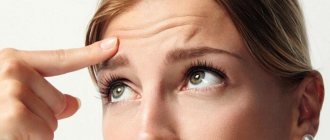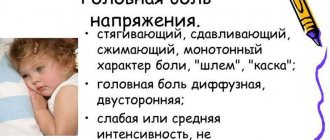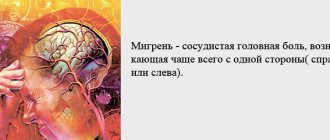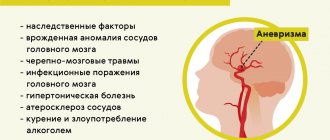Types and classification
In the human body, internal organs are constantly working and vital processes do not stop. During this, somatic sounds arise that are normally inaudible, as they are interrupted by environmental noise. However, under certain conditions, somatic noises become more distinct. A buzzing sound in the head can be caused by:
- heightened perception of internal sounds (heartbeat, breathing, etc.)
- the appearance of noises that are absent normally
- amplification of standard body noises
In pathological conditions, some noises can be heard even by a person standing nearby. However, more often sounds in the head and ears are subjective and occur in disorders that are accompanied by vibration or mechanical contraction. This internal noise is called tinnitus, which is used regardless of how the patient describes their discomfort. Tinnitus is not a diagnosis, but a symptom that can occur in many diseases.
According to various classifications, noise can be:
- Objective (listened to with medical instruments) or subjective (heard only by the patient)
- The main symptom (for ear diseases) or additional (manifestation of other pathologies)
- Low frequency or high frequency
Depending on the intensity, the manifestation of the symptom is classified into stages:
- Quiet sound, no discomfort
- Low noise that irritates the patient
- Constant sound interfering with sleep and rest
- Loud noises that cause aggression and disability
Causes
Tinnitus occurs for a variety of reasons. Some of them are temporary disorders that may go away on their own. Others are anatomical or functional pathologies (usually structures of the vestibular apparatus or brain). Depending on the cause of the noise, it may be the only discomfort or one of several unpleasant symptoms.
The causes of objective noise (which can be heard by others) are often muscle and vascular dysfunctions. The latter are characterized by changes in the intensity of sounds, their combination with the pulse and intensification with increasing blood pressure. In neuromuscular disorders, the noise is not associated with the pulse and is more like a crackling sound.
The cause of subjective noise is often damage to the hearing aid. The mechanism for the formation of uncomfortable sounds is the activation of the auditory analyzer after any damage to the body. Activation manifests itself in the form of spontaneous excitation, as a result of which the nerves transmit a sound signal to the brain. Since information recognition does not occur, the brain perceives such impulses as danger. Because of this, many patients become emotionally tense and anxious at the first sign of such noise.
Pathologies of blood vessels and nervous tissue
Pathologies of the structure or dysfunction of cerebral vessels are one of the leading causes of tinnitus. Often the root cause is atherosclerosis of the arteries or their excessive spasm. Due to the narrowing of blood vessels, obstacles arise for the movement of blood and its turbulence, and a person hears a ringing in the head.
Such diseases usually occur in a chronic form, so the symptom haunts the patient constantly. Over time, the intensity of the noise may increase, and the general condition and performance of the patient may deteriorate. Tinnitus is often accompanied by dizziness, impaired cognitive function, and memory impairment. With vascular pathologies, the brain receives less oxygen, experiences starvation and functions worse, which negatively affects a person’s quality of life. In the absence of adequate treatment, complications from the visual apparatus, a noticeable decrease in mental abilities and skin aging are possible.
Tinnitus is also present in vegetative-vascular dystonia, in which the vessels lose their tone and elasticity or become excessively spasmodic. The further development of the pathology is similar to the previous one - insufficient tissue nutrition leads to brain hypoxia, slower nervous activity and a deterioration in the patient’s quality of life. Along with the noise, a person often experiences dizziness and loss of coordination.
Neuroses
Under the influence of psychotraumatic factors, some people experience neurosis or other mental disorders that are accompanied by somatic and autonomic disorders. In such conditions, the sensitivity of the hearing aid increases, and disturbances in the conduction of nerve impulses also occur. The result is a fixation of attention on normal mechanical noises and their distinct audibility.
Anemia
At first glance, the connection between head noise and anemia is not obvious. However, anemia is a symptom of many diseases that are accompanied by oxygen deprivation - one of the main causes of tinnitus.
A decrease in the amount of hemoglobin leads to hypoxia of tissues and organs, including the brain. Prolonged oxygen starvation disrupts brain function, contributes to general weakness, dizziness, and a drop in blood pressure. Anemia is a secondary condition that occurs against the background of other diseases. Noise in the head appears as a result of anemia. You can suspect a problem based on a combination of symptoms:
- headache
- noise in ears
- shortness of breath and tachycardia
- weakness and fatigue
- dizziness
- pale skin
Such conditions require urgent treatment, as they subsequently lead to serious and even irreversible changes. Anemia is easily diagnosed after a blood test.
Osteochondrosis of the cervical spine
Blood supplies the brain with nutrients and oxygen. It enters through arteries running through the canals of the cervical spine. Here, some patients experience spasms or compression of blood vessels. When oxygen supply to the brain is disrupted, a person experiences hypoxia and obsessive tinnitus.
The most common cause of poor blood supply is osteochondrosis, a condition of degenerative disorders in the intervertebral discs. The altered structure and shape of the disc leads to incorrect positioning of the cervical spine and compression of blood vessels. Associated symptoms often include numbness in the fingers, pain in the neck, and dizziness. Osteochondrosis is difficult to treat and often remains with the patient for life.
With osteochondrosis, disturbances in the visual apparatus are possible in the form of the appearance of “floaters” or deterioration in the clarity of vision. A characteristic feature is increased discomfort when moving the head.
Alcohol and drug intoxication
Some drugs have a fairly strong ototoxic effect. Even with a short course of treatment, patients develop hearing impairments. You should be especially careful with antibiotics and NSAIDs. In case of chronic alcohol intoxication or one-time severe intoxication, toxic products that enter the body affect the structures of the brain, which leads to hypoxia and a ringing sensation.
Endocrine pathologies
Often the causes of noise in the head are endocrine disorders, in particular problems with the thyroid gland and diabetes. The final diagnosis is made only after a complete examination of the patient and evaluation of the results of a blood test. Usually, treatment requires undergoing a course of iodine therapy, adjusting nutrition and paying attention to the psycho-emotional state.
In diabetes mellitus, patients experience hyperglycemia and metabolic disorders. Over time, this leads to dysfunction of the brain, irritability, sleep disturbances, pathologies of nerve conduction and pathological ringing in the head. One of the known complications of diabetes is hearing loss. The exact mechanism of development of deafness is unknown, but it is believed that it is associated with damage to blood vessels and impaired tissue nutrition.
Inner ear diseases
Tinnitus can be caused by damage to the inner ear or the presence of infectious and inflammatory processes. Pathologies can be congenital or acquired. Physical damage usually occurs in people whose professions involve constant and loud noise, as well as in young people who listen to loud music through headphones for a long time.
Inflammatory processes lead to irritation of the structures of the middle and inner ear, causing a person to feel dizzy and hear noise. Meniere's disease is accompanied by an increase in the volume of internal fluid and pressure in the labyrinth. The first symptoms are the appearance of sounds, dizziness and autonomic disorders, and later progressive deafness occurs.
Pressure drops
Intracranial and normal hypertension are also accompanied by tinnitus. Additional symptoms here include nausea, throbbing in the temples, and pain. Such conditions can be triggered by stressful situations, excessive physical activity, alcohol abuse or smoking.
A decrease in blood pressure can also cause ringing in the head. With a sharp spasm or strong relaxation of blood vessels, the blood supply to the brain is disrupted, which causes a feeling of pulsation and noise. Some people are sensitive to changes in atmospheric pressure. In this case, ear congestion or noise may occur during an airplane flight, skydiving, or even changes in weather conditions.
What can you do
If you notice pressing pain in the ears, persistent symptoms that persist over a long period of time, you must undergo a comprehensive examination. A visit to an otolaryngologist is the first stage of a diagnostic study.
The problem can be suppressed with the help of medications, which include:
- painkillers;
- antibiotics;
- vitamin complexes;
- restoratives.
The diagnostic testing that needs to be done includes the following:
- scanning of cerebral vessels;
- MRI;
- ultrasound examination of the neck;
- X-ray examination of the spine;
- measurement of intracranial and blood pressure.
Let's take a closer look at effective diagnostic testing methods:
- Otoscopy. This method helps to identify the presence of cerumen, symptoms of otitis media or damage to the eardrum.
- Audiometry. The technique allows you to determine how the patient hears sounds of different frequencies.
- Tympanometry evaluates the condition of the auditory ossicles, auditory tubes and inner ear.
- Radiography is used despite its low effectiveness in the study of hearing impairment. X-ray examination allows you to determine intracranial pressure and identify sinusitis - common causes of squeezing sensations in the ear.
- CT and MRI can identify inflammatory processes, developmental abnormalities, and neoplasms.
- A general blood test allows you to determine the intensity of the inflammatory process and its nature: acute or chronic.
- Regular blood pressure measurements can detect hypertension.
If the whole point is arterial hypertension, then the first step is to normalize the pressure. If you have suffered from hypertension for a long time, then stuffy ears and headaches should serve as an alarming signal. Blood pressure medications should be taken regularly as prescribed by your doctor.
If the cause of the compressive pain is an acoustic neuroma, then, as a rule, surgical treatment is prescribed. An alternative technique is radiation therapy, which is prescribed in the following cases:
- inconvenient location of the tumor;
- large tumor size;
- existing contraindications to surgical treatment.
It happens that simple rest eliminates an unpleasant symptom. Pressure in the ears can be a clear sign of fatigue. You should definitely get enough sleep, walk in the fresh air and take your mind off your worries.
If the main problem is a cold, then it does not require specific treatment. Symptomatic treatment is carried out: antipyretic drugs, analgesics, antiviral drugs, etc. It is important to strengthen the immune system, because it will help cope with the disease.
The entry of water into the ear canal can provoke the development of an inflammatory process, so it must be removed as soon as possible. This can be done by tilting your head to the affected side; if this does not help, you can jump. If your attempts are unsuccessful, you must go to the hospital.
Possible complications
Ringing in the ears always indicates some kind of disorder and should not normally appear in a healthy person. In the absence of adequate treatment, the pathological processes that occur with tinnitus can lead to the following complications:
- emotional stress, which over time leads to irritability, nervousness and loss of performance
- sleep disturbance
- deterioration of memory and concentration
- constant fatigue
- deafness
- progression of the underlying disease (spread of infection, heart problems, etc.)
Why is there pressure on the ears from the inside?
Earwax may be the reason why a person constantly feels pressure in the ear. My head doesn’t hurt at all, but the feeling that my ear is stuck with a finger prevents me from concentrating and is distracting. I want to get rid of discomfort, clear the passage.
Also, a feeling of painful fullness in the ears usually provokes swelling of the auditory tube, which connects the nasopharynx to the ear. This condition is not necessarily caused by any disease. Factors leading to pressure:
- Loud music playing through headphones.
- Ascent or descent by elevator.
- Air travel.
- Diving to great depths in water.
- Climbing mountains to considerable heights.
Even a trip on the subway can provoke a pressure drop, which causes a feeling of fullness and fullness in the ears. The pressure in the ears goes away as soon as the train stops. If the acceleration of the train causes significant discomfort, you can simply open your mouth slightly or yawn deliberately.
Diagnostics
In order for the diagnosis to be made correctly, the patient must inform the doctor of all accompanying symptoms and features of his lifestyle that may be relevant. It is important to remember the cases of nausea, vomiting, dizziness, loss of sensation in the limbs, the presence of stress factors, as well as the frequency of discomfort. The nature of the noise is also important (pulsating, monotonous, constant, humming, ringing).
During the examination, the doctor will try to hear the noise to determine whether it is subjective or not. Additional examinations may include:
- CT
- dopplerography
- MRI
- blood biochemistry
- x-ray
The patient can undergo audiometry - determination of the hearing threshold, as well as auscultation with a phonendoscope. Inspection of the external part is carried out with an otoscope and reveals the structural features of the eardrum and outer ear.
Treatment
After a comprehensive examination and diagnosis, the patient will be observed by an appropriate specialist. Treatment is carried out in two directions:
- Elimination of noise sensations
- Treatment of the underlying disease
In addition to standard treatment, a responsible attitude of the patient himself is necessary. He must eliminate provoking factors as much as possible (physical and emotional overload, bad habits, loud music and others).
Treatment, depending on the etiology:
- With high blood pressure. Antihypertensive drugs, diuretics and drugs that improve metabolic processes in the heart are prescribed. Therapy is usually long-term, possibly until the end of life. With regular medication use, the symptoms of tinnitus disappear, and the structure of the heart and blood vessels is restored.
- Circulatory disorders. The root causes can be very different - from mechanical injuries to atherosclerosis. The patient is prescribed medications to normalize blood pressure and relax the vascular wall (Nifedipine, Lisinopril, Verapamil). The main place is occupied by nootropic drugs, which restore microcirculation in the brain, prevent hypoxia, promote the resolution of blood clots and eliminate atherosclerotic plaques. Doctors often prescribe Cinnarizine, Actovegin, drugs based on Ginkgo Biloba, Cavinton. Cholesterol-lowering medications may also be prescribed.
- Psycho-emotional experiences. Here the focus is on taking sedatives and drugs for vegetative-vascular dystonia. The clinical effect will be obtained at least a month after the start of treatment. The drugs must be taken regularly and for a long time.
- Diseases of the inner ear. The otolaryngologist determines the nature of the pathological process and the nature of the pathogen. Depending on this, anti-inflammatory drugs, antibiotics, antihistamines (to reduce swelling), antispasmodics (to dilate blood vessels) may be prescribed. For such pathologies, local treatment is allowed if the disease is mild.
Prevention
Recommendations for patients who experience noise in the head include the following:
- Avoid loud noises
- Monitor blood pressure, eliminate coffee, strong tea, alcohol, limit salt in dishes
- Rest should be comfortable and complete
- Don't listen to music on headphones
- Do not worry about emerging noise, so as not to psychologically increase anxiety
- Minimize stress and unpleasant emotions
The feeling of noise in the head is a rather unpleasant symptom, which may hide serious pathologies. If it does not stop or occurs again, you cannot postpone a visit to the doctor. To reduce the number of attacks or the severity of tinnitus, you need to avoid overwork, adjust your lifestyle and start treatment for the underlying disease as early as possible.
How to eliminate discomfort at home?
If you know why there is pressure on your ears and this problem is not related to diseases, you can eliminate the discomfort yourself. If your ears are clogged, you can:
- Yawn deliberately, opening your mouth as wide as possible and inhaling a large volume of air.
- Open your mouth wide.
- Open your mouth and gently pull your earlobes down.
- On an airplane or elevator, chew gum or suck on a lollipop.
- After bathing, remove the water with a napkin rolled into a rope.
When it is not known why there is a lot of pressure on the ears and noise is heard from inside, you should not self-medicate. Especially if other unpleasant symptoms are noted - dizziness, nausea, darkening of the eyes. This condition, when there is pressure in the ears and a headache, may indicate the development of a serious pathology - a brain tumor affecting the tissues located near the ear, a ruptured aneurysm, or increased intracranial pressure. Therefore, if discomfort of this kind appears regularly, you should consult a doctor.
Source: BolitGolova.info











